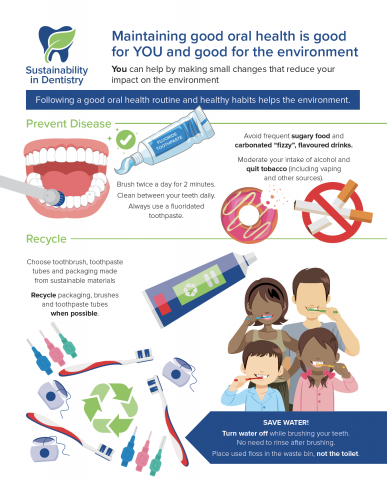Imagine exploring a new country, while also receiving top-notch dental care and helping the environment at the same time. In the world of eco-friendly dental tourism, sustainable practices are being embraced by dental clinics worldwide. From using energy-efficient equipment to practicing responsible waste management, these dental clinics not only prioritize your oral health but also strive to reduce their carbon footprint. Get ready to embark on an eco-conscious dental journey that combines the thrill of travel with sustainable dentistry practices.
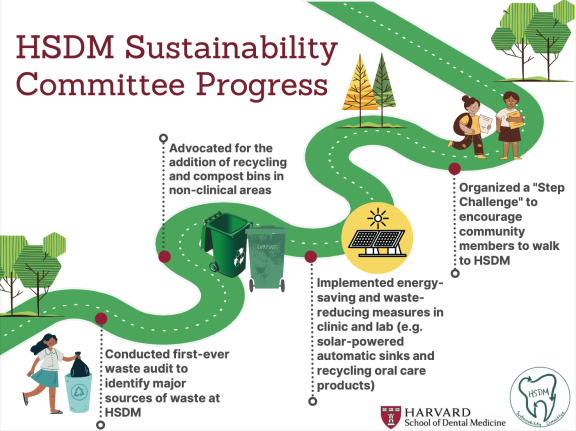
Table of Contents
ToggleEco-Friendly Dental Tourism
Sustainable Practices Worldwide
When it comes to sustainability and environmental consciousness, dental tourism may not be the first thing that comes to mind. However, eco-friendly dental tourism is making waves across the globe, with its potential to reduce carbon footprints, conserve natural resources, and improve air and water quality. In addition to the environmental benefits, there are also significant social implications, such as supporting local communities and promoting ethical dental practices. Furthermore, eco-friendly dental tourism can have positive economic considerations, including cost savings for patients, revenue generation for host countries, and the creation of green jobs. Let’s explore these aspects in more detail.
Environmental Benefits
Reduced carbon footprint
Traditional dental practices have been associated with a high carbon footprint due to the significant amount of energy consumed and waste produced. However, eco-friendly dental tourism aims to minimize the impact on the environment by implementing sustainable practices. For example, dental clinics can opt for energy-efficient appliances and lighting systems, reducing energy consumption and greenhouse gas emissions. Additionally, eco-friendly dental materials and techniques can help minimize waste production, further reducing the carbon footprint of dental procedures.
Conservation of natural resources
Eco-friendly dental tourism also promotes the conservation of natural resources. Dental materials traditionally used, such as mercury amalgam fillings, can have detrimental effects on the environment when disposed of improperly. By utilizing eco-friendly alternatives like composite resin fillings, dental clinics can reduce the reliance on non-renewable resources and minimize the environmental impact of dental procedures. Moreover, responsible water usage and efficient irrigation systems can help conserve water, a valuable resource often wasted in dental practices.
Improved air and water quality
One of the often-overlooked benefits of eco-friendly dental tourism is the improvement in air and water quality. Traditional dental procedures can release harmful pollutants and chemicals into the environment, contributing to air pollution and water contamination. However, by adopting eco-friendly practices and materials, dental clinics can minimize the release of toxins, improving both indoor and outdoor air quality. Proper waste management and recycling systems also ensure that harmful substances are disposed of responsibly, preventing water pollution and protecting aquatic ecosystems.
Social Implications
Supporting local communities
Eco-friendly dental tourism can have a significant positive impact on local communities. By choosing eco-friendly dental clinics in destination countries, patients can directly support the local economy. These clinics often prioritize hiring local staff, providing employment opportunities, and stimulating the growth of local businesses. As a result, dental tourism can contribute to the overall development and prosperity of the community, benefiting not only the patients but also the local population.
Promoting ethical dental practices
One of the key social implications of eco-friendly dental tourism is the promotion of ethical dental practices. Dental clinics that prioritize sustainability are more likely to focus on ethical patient care, ensuring that the best interests of the patients are put first. This includes informed consent, transparent pricing, and the use of evidence-based treatments. Patients can have peace of mind knowing that their dental care is being provided by professionals who prioritize ethical practices and patient well-being.
Improving access to dental care
Eco-friendly dental tourism also plays a crucial role in improving access to dental care, particularly for individuals living in countries with limited resources or high costs of healthcare. By traveling to dental destinations known for their affordable yet high-quality dental services, patients can access necessary treatments that they may have otherwise been unable to afford or access in their home countries. This not only improves the oral health of individuals but also has a positive impact on overall well-being and quality of life.
Economic Considerations
Cost savings for patients
One of the primary motivations for dental tourism is the cost savings it offers to patients. Dental procedures can be quite expensive, especially in countries where healthcare costs are high. By traveling to dental destinations known for their affordability, patients can significantly reduce their dental expenses while still receiving high-quality care. This cost savings can allow individuals to access vital dental treatments that may have been financially out of reach in their home countries.
Revenue generation for host countries
Eco-friendly dental tourism also presents significant economic benefits for host countries. Dental tourism brings in revenue through various channels, including patient expenditures on dental procedures, accommodations, and local activities. This influx of revenue can contribute to the growth of local businesses, infrastructure development, and job creation. As a result, dental tourism can have a far-reaching positive impact on the economic well-being of the host countries, supporting sustainable development and prosperity.
Creating green jobs
Another economic consideration of eco-friendly dental tourism is the creation of green jobs. By promoting sustainability, dental clinics can embrace environmentally conscious practices, such as energy-efficient technologies and waste management systems. This creates a demand for professionals with expertise in sustainable dentistry, stimulating the growth of green jobs within the dental industry. These jobs not only contribute to the economy but also promote a more sustainable workforce and a greener future.
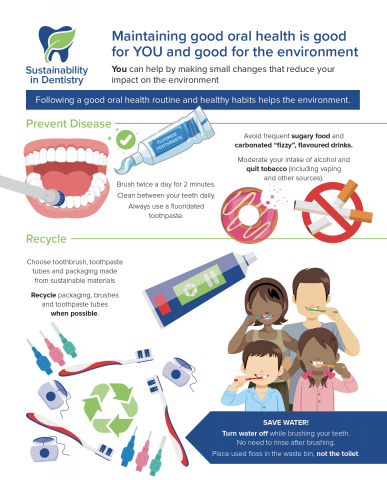
Sustainable Dental Practices
Use of eco-friendly materials
One of the pillars of eco-friendly dental tourism is the use of eco-friendly materials. Dental clinics can opt for alternatives to traditional materials that have a negative impact on the environment, such as mercury amalgam fillings. Eco-friendly materials, like composite resin fillings and biodegradable dental implants, are not only safer for the environment but also proven to be just as effective and durable as their traditional counterparts. By using these materials, dental practices can reduce their environmental footprint without compromising the quality of care provided to patients.
Energy-efficient dental clinics
Energy efficiency is another vital aspect of sustainable dental practices. Dental clinics can adopt energy-efficient technologies and appliances to reduce their energy consumption and environmental impact. For example, LED lighting systems can significantly reduce electricity usage while providing optimal lighting conditions for dental procedures. Energy-efficient heating and cooling systems can also contribute to overall energy savings, making dental clinics more environmentally friendly and energy-conscious.
Waste management and recycling
Proper waste management and recycling are crucial components of sustainable dental practices. Dental clinics generate a significant amount of waste, including hazardous materials like mercury and other chemicals. By implementing effective waste management systems, clinics can ensure the safe collection, storage, and disposal of hazardous waste, preventing environmental contamination. Recycling programs can also be established to minimize waste and promote the reuse of materials whenever possible, further reducing the environmental impact of dental practices.
Eco-Friendly Dental Destinations
Countries leading in sustainable dental tourism
Several countries have emerged as leaders in sustainable dental tourism, prioritizing eco-friendly practices and promoting environmental consciousness. Costa Rica is a prime example, with a strong commitment to sustainability and environmental preservation. The country is renowned for its eco-friendly dental clinics, which prioritize the use of biodegradable materials and energy-efficient technologies. Other countries, such as Thailand, Mexico, and Hungary, have also made significant strides in adopting sustainable dental practices and attracting eco-conscious dental tourists.
Certifications and recognition for eco-friendly dental practices
To further promote eco-friendly dental tourism, certifications and recognition programs have been established to identify dental clinics that prioritize sustainability. The Green Dentistry Certification Program, for example, evaluates dental practices based on their use of eco-friendly materials, energy-efficient technologies, and waste management systems. Recognition programs like these not only incentivize dental clinics to adopt sustainable practices but also provide patients with a reliable way to identify eco-friendly dental destinations.
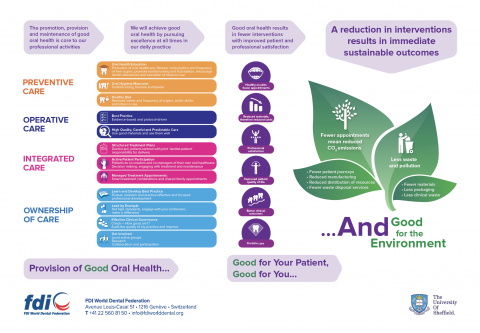
Case Studies
Successful eco-friendly dental tourism initiatives
Several successful eco-friendly dental tourism initiatives have demonstrated the positive outcomes of sustainable dental practices. One notable example is the collaboration between dental clinics in Costa Rica and the local government, which aims to establish eco-friendly dental tourism as a cornerstone of the country’s healthcare system. This initiative has not only attracted an increasing number of eco-conscious dental tourists but has also brought economic benefits to the local communities and improved access to dental care for the population.
Positive outcomes for patients and communities
Through eco-friendly dental tourism, both patients and communities can experience positive outcomes. Patients can benefit from high-quality dental care at a fraction of the cost compared to their home countries, while also supporting sustainable practices. For communities in dental tourism destinations, the economic benefits extend beyond the dental clinics, creating a ripple effect that stimulates local businesses and fosters overall development. This interconnected relationship between patients, communities, and dental clinics highlights the potential of eco-friendly dental tourism as a sustainable practice.
Challenges and Solutions
Addressing language and cultural barriers
One of the challenges of eco-friendly dental tourism is overcoming language and cultural barriers. Patients traveling to dental tourism destinations may face difficulty communicating their dental needs and understanding the treatment options due to language differences. To address this challenge, dental clinics can employ multilingual staff or provide translation services to ensure effective communication. Collaborations with local tourism authorities and travel agencies can also facilitate smoother communication and address cultural differences, enhancing the overall patient experience.
Overcoming resistance to change
Resistance to change can pose a challenge when attempting to promote sustainable dental practices. Some dental professionals may be hesitant to adopt eco-friendly materials or invest in energy-efficient technologies due to concerns over cost or unfamiliarity with sustainable practices. Overcoming this resistance requires education and awareness campaigns to demonstrate the benefits of sustainable dentistry, showcasing success stories and highlighting the positive impact on the environment and patient well-being. Providing training and resources on sustainable dental practices can also encourage dental professionals to embrace these changes.
Promoting awareness and education
Promoting awareness and education is crucial in driving the adoption of eco-friendly dental practices. Patients need to be informed about the environmental benefits of eco-friendly dental tourism and how they can actively contribute to a more sustainable future. Dental professionals should receive adequate training and education on sustainable practices, equipping them with the knowledge and tools to implement eco-friendly initiatives. By partnering with dental schools, dental organizations, and government agencies, awareness campaigns and educational programs can effectively spread the message of sustainable dental tourism.
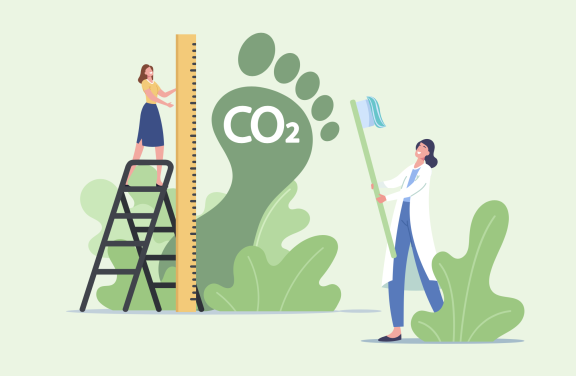
Future Trends
Advancements in sustainable dental technology
The future of eco-friendly dental tourism is promising, with the continuous advancements in sustainable dental technology. Innovative materials, such as biocompatible and biodegradable alternatives, are being developed to further minimize the environmental impact of dental procedures. Additionally, advancements in energy-efficient technologies and renewable energy sources can help dental clinics become even more environmentally friendly. These future trends not only benefit the environment but also contribute to the overall quality and effectiveness of dental care.
Growing demand for eco-friendly dental tourism
There is a growing global demand for eco-friendly dental tourism as more individuals become conscious of their environmental impact. Patients are actively seeking dental destinations that prioritize sustainability and environmental responsibility. This increased demand encourages dental clinics worldwide to adopt eco-friendly practices and invest in sustainable technologies. As the demand for eco-friendly dental tourism continues to grow, so does the potential for positive environmental, social, and economic outcomes.
Conclusion
The potential of dental tourism as a sustainable practice
Eco-friendly dental tourism is revolutionizing the dental industry by prioritizing sustainability, environmental consciousness, and social responsibility. Dental tourism offers numerous benefits, including reduced carbon footprints, conservation of natural resources, improved air and water quality, and economic advantages like cost savings for patients and revenue generation for host countries. By embracing eco-friendly materials and technologies, dental clinics can create greener practices, reduce waste, and conserve resources. With its potential to improve access to dental care, support local communities, and promote ethical practices, eco-friendly dental tourism has a bright future ahead. The convergence of sustainability and dental tourism presents a unique opportunity to benefit patients, communities, and the environment, making it a truly comprehensive solution for a better, greener future.

